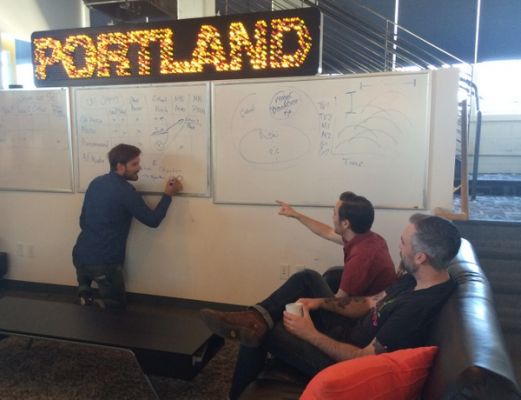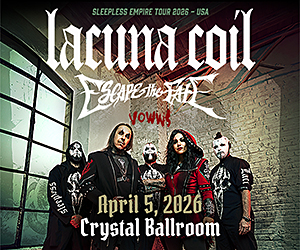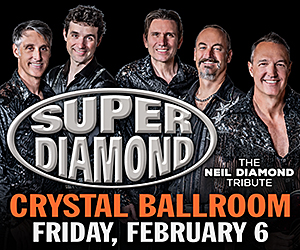Home > News
05/27/2015
Indie musicians profit with industry Rock stars CD Baby and Rumblefish
BY SUNNY CLARK //
this ain’t no party
this ain’t no disco
this ain’t no fooling around
-Talking Heads, Fear Of Music (1979)
Even as musicians seek to revive and retain the elegance of low-tech instrumentation, music, as an industry, went hi-tech a long time ago. Now, earning your due as a 21st Century minstrel is complicated, but- with the right guidance and options -it doesn’t have to be.
Every independent artist working in music today needs to educate themselves about how to monetize their beats in the new economy. Long gone are the days of garage-band-makes-good-playing-local-gigs-wins-Grammy and global distribution can launch with your first recording.
Contrary to popular opinion- rather than it being more difficult to make a living as a musician -it’s easier and cheaper than ever to have your own music widely distributed and even to become an international sensation. However, sifting through the myriad of new services available for digital music distribution alone is not what a musician wants or needs to be doing with their creative selves.
Enter the distributor who contracts directly with artists. Digital media has now made music publishing and licensing surprisingly accessible to individual artists and musicians who no longer have to wait and hope to be among the chosen few to secure a record deal. Today, bands can simply order 1,000 of their own CDs in jewel cases for as little as a dollar each from companies like Disc Makers, then secure direct distribution funnels. Or, if you’re Portlandish(or, just really like quality sound), they’ll even cut your vinyl records.
Oregon is home to two of the most avant firms leading the way. Each founded in the 1990s,CD Baby and Rumblefish complement each other’s services so thoroughly that they’re all a musician needs for worldwide distribution, including securing licensed uses of their music by third parties. (CD Baby became Disc Maker’s sister company in 2008, when it was acquired by the manufacturer, so there’s an ease of process between these two as well.)
As service providers to music artists, CD Baby and Rumblefish each work to stay on the cutting edge of new developments, distilling them down to what works best for indie bands and artists. One complements the other with programs that combine to empower musicians, enabling a living to be earned from their art using the many available income streams now populating a growing digital landscape.
CD Baby
For Kevin Breuner, music is more than a job or a passion. It’s become a calling. Whether he’s in the studio or behind a desk, it’s his life, “So many people still think all successful artists are on major labels. When I help show them that independent music can be successful, it helps us all.”
Former Guitarist for Grammy-Nominated Smalltown Poets Current CDBaby Marketing Manager (excerpt from Website)
CD Baby is the largest distributor of independent music and artist profits on the planet, having now paid out over $300 million to musicians worldwide. Furnishing iTunes with 17% of their music catalog, profitably distributing CDs and creating new revenue streams like sync-licensing at over a million in sales and counting. CD Baby has the numbers to impress anyone looking to create an income from their musical art. “Made in Oregon” never sounds quite so fine as when it’s accompanied by the golden ring of ch-ching, ch-ching!
With nearly a decade under his guitar strings as Marketing Manager, Kevin Breuner recalls well the music industry status quo before CD Baby: “I started playing music in college in the 90s – unless you had a record deal, you really didn’t have access to the fans. Artists have so much access to the marketplace now and are directly connected to their fans. There’s so many different ways that we’re helping artists make money from their music now – we have lots of artists making thousands of dollars a month just from YouTube. We’re always opening new revenue streams and publishing about new ways to monetize music on our website.”
Most musicians are unaware of just how accessible CD Baby is to them. A single $59 sign-up fee and a 9% cut of sales gets you distributed by CD Baby- to iTunes, Spotify, and other major music platforms -for life.
Says Breuner, “Artists need to take advantage of all the revenue streams available. The rep is always that it’s rough to make it in the music business – it always has been! Now, though, distribution is far and wide.”
“Artists tend to think too locally. The audience is worldwide on the web. Often, when our artists monetize YouTube, for instance, they’re shocked that they start making money,” remarked Breuner.
For musicians today to earn a living at their craft, Breuner informs that they need to grasp that “it’s a pie… artists who want to make a living from their music should understand that you need to participate in all those revenue streams, every slice of the pie.”
With no print advertising, CD Baby truly represents the digital age in music and is known for offering artist education and guidance – from monitoring ASCAP and attending global conferences, to navigating the latest technology and international licensing.
There’s more to it than creating and maintaining funnels for artists to make and collect revenue. Breuner recalls that “as a musician, I’d been using CD Baby since 2003 – always one of the few online resources that informed you about the business of music.” Then, as now, CD Baby was a place to discover and monetize your options with all-inclusive services.
Highly active on social media, regular Twitter chats now invite members and would-be members at midday on the first Wednesday of each month, with topics posted ahead of time. A recent topic was “Your Best Touring Advice.”
Breuner’s DIY Musician podcasts are well worth the listen. “I try to interview people who will help move independent artists’ careers forward,” says Breuner, “a lot of Oregonian industry insiders, like editors, bookers… I’ve had Alisha Rose and Alex Steininger on, for instance. Everything about music promotion, booking shows and publishing is discussed.”
Sharing a marketplace and a similar artist-centric ethos, Rumblefish acts as a partner company (that employs numerous former CD Baby staffers), assisting with things like YouTube monetization for musicians.
Rumblefish
With a $5,000 investment from a law professor impressed with his fledgling legal and business acumen, the world’s first music micro-licensing business was founded in Oregon by a law school drop out of the first degree, Paul Anthony – and you can’t get more indie than him.
Anthony, ironically, had been expelled from business college for – of all things – starting a business. Rather than slither gently away from the dubious powers that be, he audited law classes for the next year to learn all he could about the copyright laws he’d predicated his rumbling business upon.
Not one to bear a grudge, last year Paul Anthony came full circle when he founded an endowment at his would-be alma mater. The Rainmaker Fund offers an annual award of $5,000.
Working with thousands of labels, the growing empire of Rumblefish now licenses music from bands and record labels to the tune of three million songs, with another 10,000 titles being added weekly from essentially every country in the world. All media, including film, television and even Muzak- the once-dreaded “elevator music” now spinning indie tunes -are part of the Rumblefish roster.
Anthony describes the roots of Rumblefish as, “The segment we pioneered is music micro-licensing, where you put music into social videos. For instance, if you shoot a video on Instagram, you’re presented with a few options before you share, offered the opportunity to pick a song. Apps and websites using video pay us for access to music and we pay the artists. Now we license over four billion YouTube views each month from over three million songs in our catalog.”
Top performing indie artists earn $50,000 – $150,000 a year from micro-licensing alone and Rumblefish also licenses synchronization rights. “Any image synchronized with music requires digital music streaming or sync-licensing,” says Anthony, adding that “just five or 10 years ago, micro-licensing wasn’t really useful to you. Now, the whole world is switching from traditional media to online video and we’re excited to be on the leading edge. We have a whole editorial team that curates the entire process and we’ve been doing it since before YouTube.”
During the interview, Anthony predicts that Rumblefish will “probably break our 100,000/100 millionth license today, soon to be a half million licenses a day. It presents incredible opportunities for musicians to have their music licensed.”
Anthony sees no end to micro-licensing opportunities for artists, especially “now that everyone with a cell phone is a filmmaker. We’re excited to see how far it goes.” Plus, as Anthony remarked, “CD Baby is so good at creating a lot of independent artist opportunities” that the monetary landscape is wide open for musicians in ways not even fathomed in the disco days of yore. Starving artists are a stereotype we’d all like to put to rest and the digital age may yet surprise us by doing just that.








